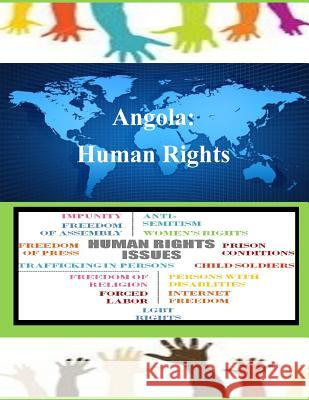Angola: Human Rights » książka
Angola: Human Rights
ISBN-13: 9781502825926 / Angielski / Miękka / 2014 / 42 str.
Angola is a constitutional republic. The ruling Popular Movement for the Liberation of Angola (MPLA), led by President Jose Eduardo dos Santos, has been in power since independence in 1975. The MPLA exercised tight, centralized control over government planning, policymaking, and media outlets. In August 2012 the government held the first fully constituted presidential and legislative elections in the country's history. The MPLA won 71.8 percent of the vote, and in September 2012 dos Santos began a five-year term as president. Domestic and international observers reported that polling throughout the country was peaceful and largely well organized. Observers highlighted problems associated with the ruling party's control of media and other resources, the inability of many citizens to vote because of confusion about their registration status, and insufficient credentials for domestic and political party election observers. Authorities generally maintained effective control over the security forces. Security forces committed human rights abuses. The three most important human rights abuses were cruel, excessive, and degrading punishment, including reported cases of torture and beatings as well as unlawful killings by police and other security personnel; limits on freedoms of assembly, association, speech, and press; and official corruption and impunity. Other human rights abuses included: arbitrary or unlawful deprivation of life; harsh and potentially life-threatening prison conditions; arbitrary arrest and detention; lengthy pretrial detention; impunity for human rights abusers; lack of due process and judicial inefficiency; infringements on citizens' privacy rights and forced evictions without compensation; restrictions on nongovernmental organizations (NGOs); discrimination and violence against women; abuse of children; trafficking in persons; limits on workers' rights; and forced labor.
Zawartość książki może nie spełniać oczekiwań – reklamacje nie obejmują treści, która mogła nie być redakcyjnie ani merytorycznie opracowana.











